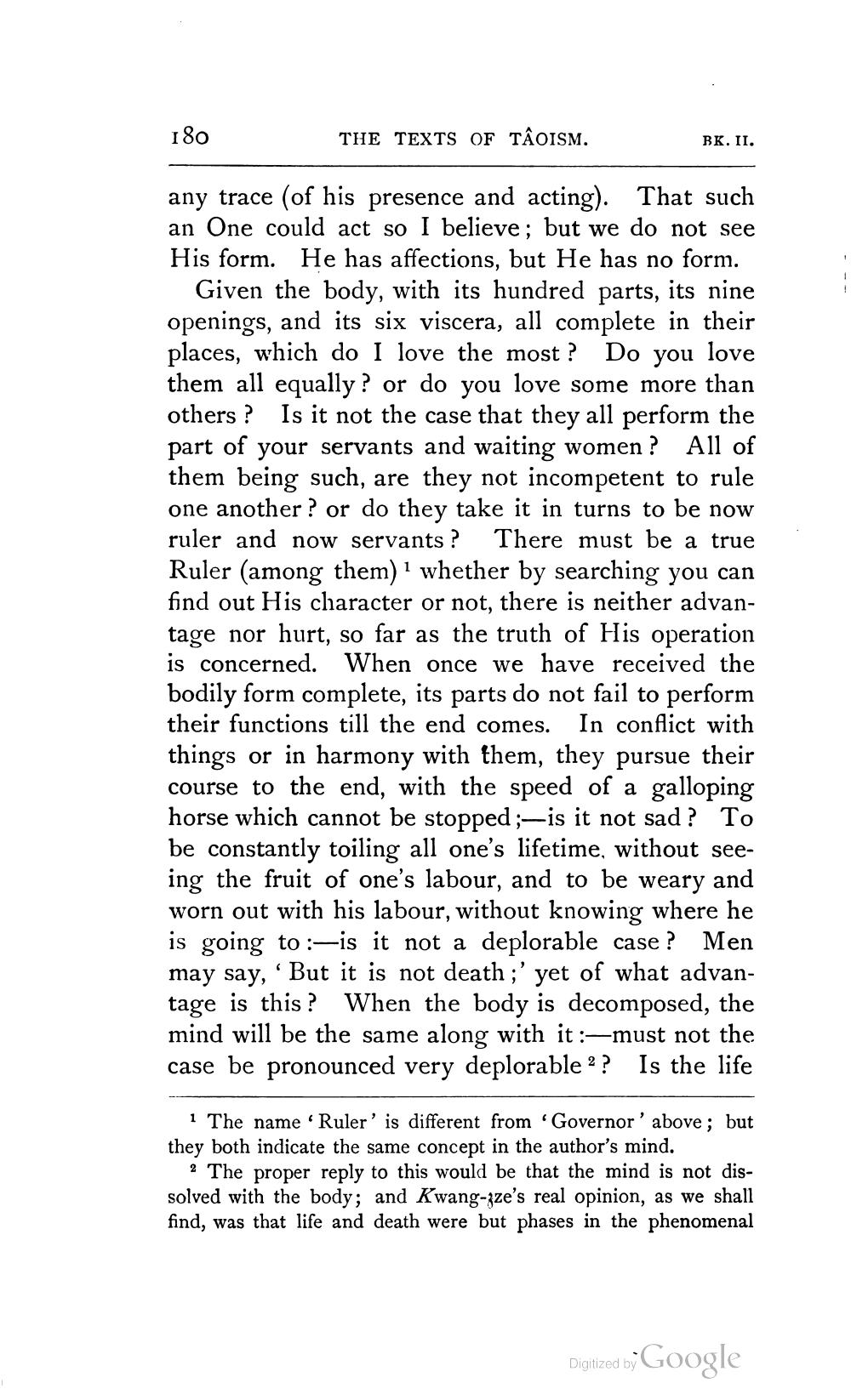________________
180
THE TEXTS OF TÂOISM.
BK. II.
any trace (of his presence and acting). That such an One could act so I believe; but we do not see His form. He has affections, but He has no form.
Given the body, with its hundred parts, its nine openings, and its six viscera, all complete in their places, which do I love the most? Do you love them all equally ? or do you love some more than others ? Is it not the case that they all perform the part of your servants and waiting women? All of them being such, are they not incompetent to rule one another? or do they take it in turns to be now ruler and now servants? There must be a true Ruler (among them) whether by searching you can find out His character or not, there is neither advantage nor hurt, so far as the truth of His operation is concerned. When once we have received the bodily form complete, its parts do not fail to perform their functions till the end comes. In conflict with things or in harmony with them, they pursue their course to the end, with the speed of a galloping horse which cannot be stopped ;-is it not sad? To be constantly toiling all one's lifetime, without seeing the fruit of one's labour, and to be weary and worn out with his labour, without knowing where he is going to :-is it not a deplorable case ? Men may say, ' But it is not death ;' yet of what advantage is this? When the body is decomposed, the mind will be the same along with it :-must not the case be pronounced very deplorable 2? Is the life
1 The name 'Ruler' is different from Governor' above; but they both indicate the same concept in the author's mind.
2 The proper reply to this would be that the mind is not dissolved with the body; and Kwang-zze's real opinion, as we shall find, was that life and death were but phases in the phenomenal
Digitized by Google




